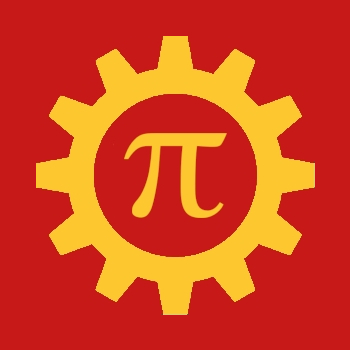So I found out about Marx’ mathematical manuscripts, so I say “Hey, I’ve been studying mathematics this year at university. I understand limits and derivatives, maybe I can understand something of that gibberish.” So I see the titles and the one called “On the Concept of the Derived Function”, I go there and I see some notation I don’t understand, he speaks about things I’m not clearly understanding, so maybe some of you could make it clear.
For example:

Why is this x sub 1 notation? Is this some other way to write derivatives? Because on the footnotes it says this:
- In order to avoid confusion with the designation of derivatives, Marx’s notation x´, y´, … for the new values of the variable has been replaced here and in all similar cases by x1, y1, …
Then I saw a talk about Marx’s mathematics and the infinitesimal and some of that stuff, but the one who was speaking didn’t went much into the mathematical part but was more like a history talk on how the Chinese were interested in the propositions of Marx because it liberated calculus from the idealist veil with which it was conceived by Leibniz and Newton, but the one who was talking mentioned Marx learning mathematics with whatever he had around and didn’t managed to read Cauchy so we was like “Yeah this is nice but it’s al shit now we have proved it fully works.” But well, he seems a bit biased, since he’s a Usonian, so maybe Marx’s writings are still relevant, I don’t even know who the fuck Cauchy is, so yeah, help.
Text: https://www.marxists.org/archive/marx/works/1881/mathematical-manuscripts/ch03.html


Just wanted to say thanks for bringing up this topic and thanks to those who have commented. Fascinating topic. I am not a mathematician, but you have asked and answered questions so clearly that I have understood what you’re saying.
Although there seems to be some debate about his politics, Lancelot Hogben was a materialist who wrote Mathematics for the Million: How to Master the Magic of Numbers. In the ‘Instructions for Readers of this Book’, he wrote:
The book as a whole gives a
To me, if a materialist writes a book to put a subject in it’s historical context, to explain social interconnections, they are more or less an historical materialist, i.e. a Marxist, who wants to do Marxism in the West, in the height of the cold war, without losing their job.
Anyway… you might find the book helpful. I have only read the first couple of chapters. I found it interesting, although you appear to be far more advanced than I am. It is the kind of book that you can just read and enjoy from start to finish, but there are exercises, too. Hogben suggests reading it once to understand the structure, then a second time more carefully and to complete the exercises.
There is a pdf on the internet if you search for it in the usual places. It may be too basic for you, but it seems to be in-depth to me.
Thanks a lot for your recommendation, I have again add it to my infinite to read list, and while I’m currently reading like 4 books at the same time I will try to make room for it this year, since it seems like an interesting book which can help me understand mathematics better which comes in hand for the university. I wouldn’t call myself much more advanced, limits and derivatives seem like a complex and smartsy pantsy subjects but they are not that hard to understand if you have the correct person to explain it to you and you have some other basic knowledge of mathetmatics. Thanks again, comrade!
Where would we be without infinitely growing reading lists? You’re welcome.